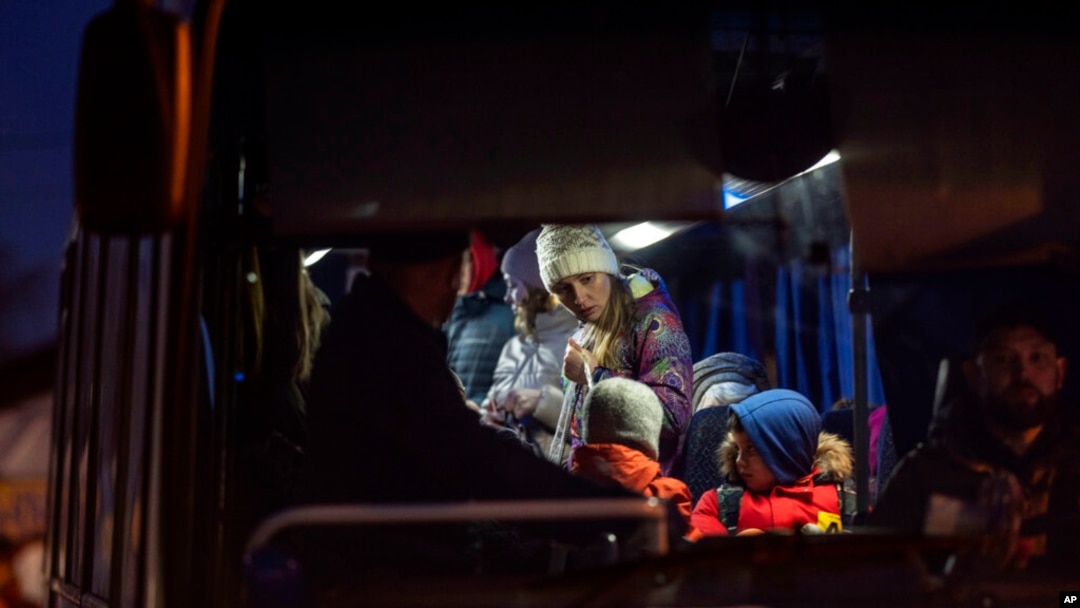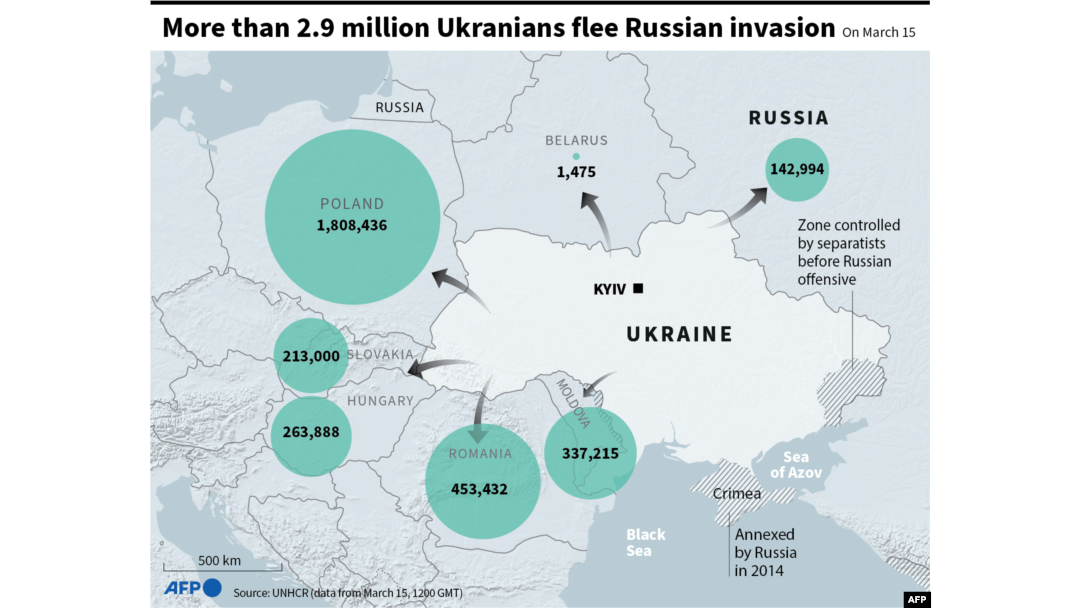More than 2.8 million people have fled Ukraine since the Russian invasion, according to the United Nations — the swiftest mass exodus of refugees since World War II, some experts say.
The overwhelming majority of refugees from Ukraine are fleeing to European Union countries. More than half of those have fled to Poland, while hundreds of thousands are seeking safety in Hungary, Romania, and Slovakia.
Leah Zamore, who leads the humanitarian crises program at New York University’s Center on International Cooperation, told VOA the Syrian refugee crisis took several years to reach the number of people who have left Ukraine in less than two weeks.
“So the swiftness of this outflow is really, really unprecedented,” she said.
Zamore said it is going to be difficult for Europe to accommodate so many people so quickly. But it has been “a remarkably generous response, at least when it comes to the Ukraine crisis.”
Map: Ukrainians Fleeing Russian Invasion
What is the current refugee policy for those fleeing the conflict?
Ukrainians already enjoyed visa-free travel to the European Union for up to 90 days. Since the invasion, the situation and the numbers are rapidly evolving. Because of that, the European Union’s executive branch, the European Commission, has activated the Temporary Protection Directive, which grants immediate protection to those fleeing the war while providing access to schools, medical care, and work.
How can someone qualify for the Temporary Protection Directive (TPD)?
The European Commission’s decision to activate the TPD is historic. This is the first time it has been activated since 2001, when the commission created it. It applies to all Ukrainian nationals and their relatives displaced by the conflict.
Under the guidelines, Ukrainian refugees are allowed to temporarily reside and work in European Union countries. But, in order to qualify for humanitarian status, they must have fled Ukraine after February 24, the day the invasion began.
How long can people stay?
Refugees from Ukraine will be granted permission for temporary residence in the European Union for at least one year, with the possibility of an extension for two more years.
What happens to people who are not Ukrainian nationals?
Non-Ukrainian nationals of third countries and stateless persons, as well as their family members, will be protected under TPD as long as they can prove they were legally residing in Ukraine and cannot return to their country of origin.
Esther Pozo-Vera, head of the asylum unit and directorate-general for Migration and Home Affairs for the European Commission, said the decision cuts the “red tape.”
“You don't have to apply for temporary protection. This is granted by the decision. The only thing you have to do is basically ask for a residence permit and this residence permit will trigger the other rights,” Pozo-Vera said during a recent webinar hosted by the Migration Policy Institute.
What exactly do refugees get under TPD?
Some countries are providing free transportation, which means free rail and bus travel for those fleeing Ukraine. They are also expected to receive medical care and other welfare benefits.
Those younger than 18 are allowed to attend school. Unaccompanied children will be placed under the guardianship of foster families, relatives, or facilities run by government officials that were adapted to welcome minors.
People will be allowed to apply for jobs, receive training in trades, and use their workplace experience to become self-employed workers.
When it comes to housing, members of the European Union must make sure people have access to accommodations, either in reception centers or with European families willing to house them.
Can refugees apply for asylum while being protected under TPD?
Yes. According to the European Commission's website the right to temporary protection is in addition to the right to apply for international protection.
Pozo-Vera explained the hope is that the conflict will not last and because refugees are protected under TPD, they “will not ask for asylum immediately. … And that means the asylum system of the member states will not be overwhelmed by a new flow of massive applications of asylum.”
Are there any other ways to receive protection besides TPD or applying for asylum?
Yes. Those fleeing might be able to apply for a residence permit if they have a family member who is an EU citizen or if they were already legally residing in the European Union as a student, researcher, trainee, or worker.



